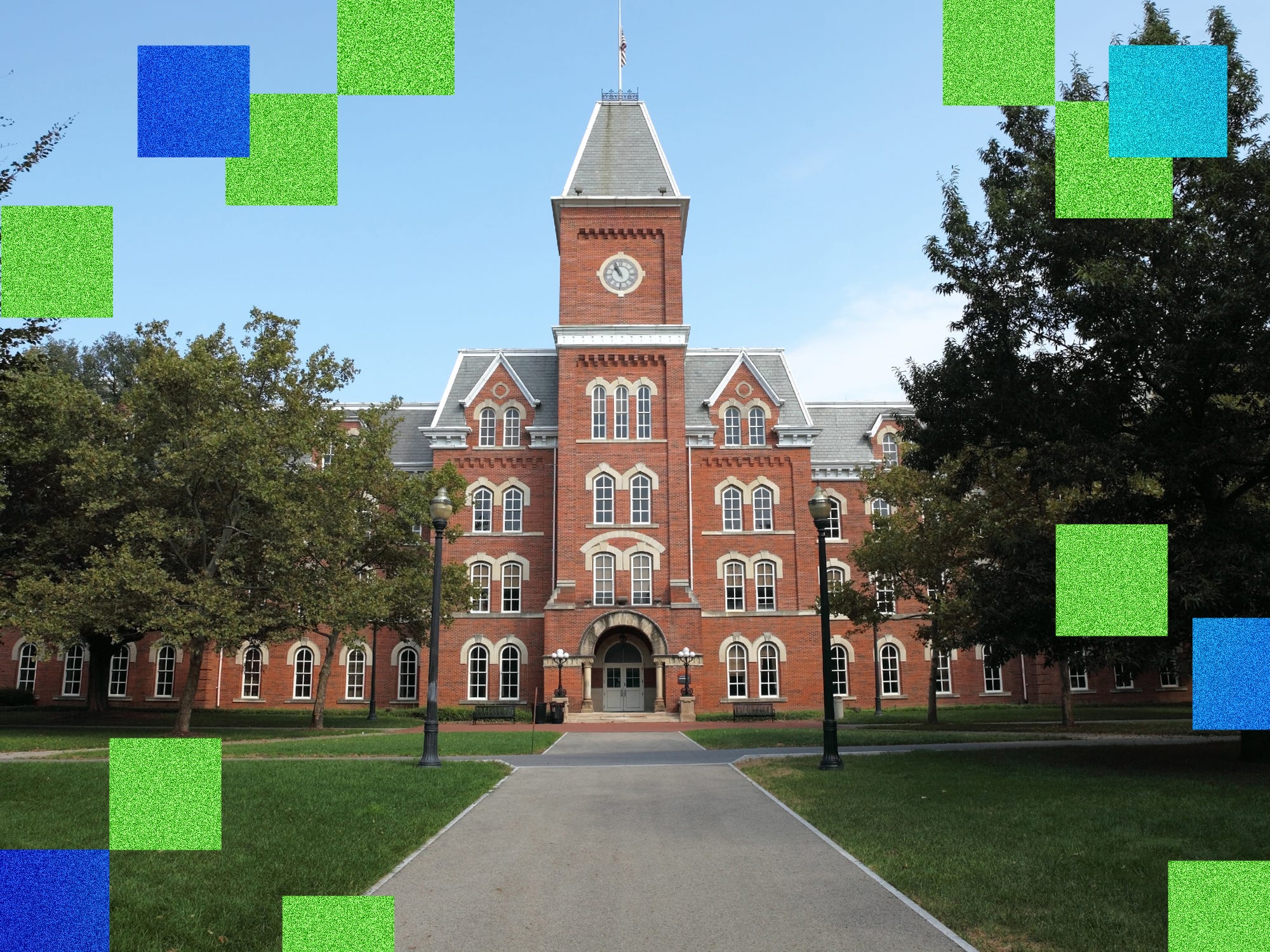
DenisTangneyJr/Getty Images
At The Ohio State University, students attend lectures on generative AI and predictive analytics for supply chain management. At Georgia Tech, supply chain leaders can take a “Generative AI Application for Supply Chain Professionals” course. The Massachusetts Institute of Technology offers a summer immersive called AI in Supply Chain and Logistics Management.
With AI becoming an integral part of supply chain operations — in areas like inventory management, warehouse technology, and delivery routes — US universities and certification programs are incorporating tech-focused coursework into existing supply chain management lessons so that students can prepare to work in the sector’s up-and-coming careers.
In some cases, companies are partnering directly with universities to ensure students have the skills they need to join the workforce. Blue Yonder, a supply chain software provider, inked a two-year partnership in February with the University of Arkansas, making Blue Yonder the first-ever title sponsor for the Master of Science in Supply Chain Management Program.
Through the program, the university uses Blue Yonder technology as a teaching tool, while also collaborating with the company’s leaders on courses, curriculum, and guest lectures. Nathalie Carruthers, the chief associate success officer at Blue Yonder, said the partnership goes beyond securing its own talent pipeline and hoping graduates might work for the company one day.
“It’s evolving the practice of supply chain as a discipline, as a profession, and making sure that tomorrow’s supply chain professionals are prepared for what we are seeing in this space,” Carruthers told Business Insider.
A new kind of syllabus
Today’s supply chain programs and careers look different from years past. In 2000, there were about a dozen academic supply chain programs, said Abe Eshkenazi, CEO of the Association for Supply Chain Management, a nonprofit focused on supply chain transformation, innovation, and leadership. Today, there are more than 700, with pandemic-related supply-chain issues contributing to more awareness and interest in the career path.
In addition, 25 years ago, supply chain workers often came from warehousing or transportation backgrounds with a manual labor focus. Now, warehouse roles require a greater understanding of technology, Carruthers said.
This shift has affected university programs, which now incorporate technology to prepare students for work in modern supply chains.
At universities, “there is a willingness and a strong interest to ensure that the technology piece is there” in their curricula, Carruthers said. Students could be given real-life case studies, such as a cargo ship being stuck in the Suez Canal, and asked to think through how they would solve the issue using technology or AI, she said.
Vince Castillo, an assistant professor of logistics at The Ohio State University Fisher College of Business, teaches a logistics and supply chain analytics course. He introduces students to genAI prompts and ethics, AI assistants, predictive analytics, forecasting, and vehicle routing with AI. Students build a machine learning model that forecasts demand or studies delivery challenges, and they experiment with letting AI write the code for it.
“It’s all against this backdrop of how AI is going to help or hinder those sorts of analytical efforts,” Castillo said.
He also teaches an executive education class, designed for current supply chain professionals. During the two-day course on genAI, attendees learn AI ethics, practical applications for genAI in the supply chain — like contract analysis and customer relationship management — and how to implement these processes at their organizations.
The Association for Supply Chain Management offers several supply chain certifications. Technology has become a “significant part” of some, Eshkenazi said, including the Certified in Planning and Inventory Management designation and the Supply Chain Technology Certificate, both of which include lessons on using AI and machine learning in the supply chain.
The association asks companies which skills they’re seeking, which then informs the content of its certification programs. It recently surveyed 3,500 supply chain professionals and found 45% use AI chatbots in their jobs. Companies are beginning to say that having AI and technology skills is “not a nice to have; it’s a need to have,” Eshkenazi said.
AI is one tool in the supply chain workforce’s toolkit
The generations entering university are digital natives who grew up surrounded by tech, and AI is now part of that. Castillo said that during the most recent semester, almost every student in his class had an AI model on their screen in the computer lab.
“There’s no fear in terms of new technology,” Carruthers said.
At the same time, students tend to lack critical-thinking skills, Eshkenazi said. He described them as overweight on technology and underweight on problem solving, which could lead to “blindly applying technology without understanding the implications.” He likened it to handing the keys of a Ferrari to someone who just got their driver’s license.
“The systems are much more powerful than we’re using them right now,” Eshkenazi said.
As such, associations, universities, and partner companies are trying to strike a balance between teaching AI and business skills. Ultimately, the principles of supply chain management aren’t going away.
Castillo said he aims to give his students as much experience with AI as possible so they understand the technology’s capabilities and its limitations.
“You can’t just throw AI at a problem and expect it to solve it for you,” Castillo said.
Castillo said that he starts many of his courses by teaching students how to write business cases and frame them within an overall corporate strategy. They use analytics to inform their larger business strategies, and tools like AI act as their decision-making aids. The students, once hired, will be the ones making decisions and held accountable, not AI, he added.
“They have to learn to lead AI rather than let it lead them. Otherwise, you never know where it’s going to take you,” Castillo said.
The post Universities are tailoring supply chain courses to prepare students for the industry’s AI revolution appeared first on Business Insider.




